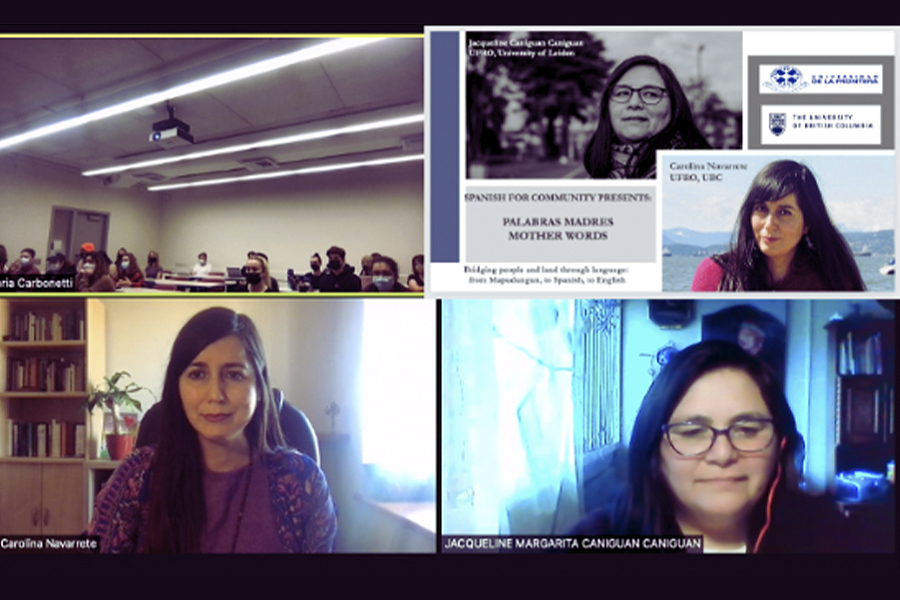|
The project was created in cooperation between the two universities and seeks to advance in the field of interculturality and to work on two global goals of the Sustainable Development Goals, such as Climate Action and Quality Education. |
In search for relevant advances in the field of interculturality, Dr. Carolina Navarrete, a researcher in the field of Literature of the Faculty of Education, Social Science and Humanities at the Universidad de La Frontera (UFRO), Chile, and Dr. María Carbonetti, a researcher in the field of Hispanic Studies at the University of British Columbia (UBC), Canada, and coordinator of the initiative “Spanish for Community” at UBC, started to work together on the creation of a project called “Mother Words and the rights of the planet: literary and linguistic vitality for the repair of the earth”. One of the aims of this project is to advance in the field of interculturality and to work on two global goals of the Sustainable Development Goals (SDG): Climate Action and Quality Education. Dr. Carbonetti at UBC in Vancouver, Canada, pointed out: “I decided to work with UFRO because both of our universities are interested in ancestral tradition and culture – of the Chilean Mapuche People at UFRO and of the Canadian Musqueam People at UBC.” In this respect, she added that “being fully aware of the implications of teaching and learning through indigenous languages, this is a first approach, and our project will allow us to create study materials for our universities, as well as for our communities. We want to promote a profound reflection on the transnational reality of indigenous territories and their epistemologies and to decolonize the teaching and learning experience”. Through the study and translation of literary texts – Mapuche poetry in particular – Dr. Navarrete highlights the aspect of literature produced within the territory to generate nourishing dialogues between cultures. She explains that “the potential of literature to cross borders is impressive, since we can promote a cultural transformation through its study. That positively affects the teaching and learning process, for the students as well as for the teachers at UFRO and UBC. But it also helps us to connect with our environment and our indigenous communities in the La Araucanía Region in Chile and in British Columbia in Canada, based on currently relevant topics such as interculturality, respectful dialogues and the protection of our planet,” explained Dr. Carolina Navarrete. In October, the first approach for this new project was made upon invitation of Dr. Carbonetti and the researchers Dr. Carolina Navarrete and Jacqueline Caniguan, who lectured about the importance of culture and the language and literature of the Mapuche People, interacting with students of the “Spanish 301-102” course of UBC. This project, which is going to be carried out during 2022, will be translated into four different languages: Mapuzungun, Musqueam, Spanish and English; and the main researchers in charge are Dr. Carbonetti of UBC and Dr. Navarrete of UFRO. This joint work between both universities will also allow to strengthen the links and to improve the knowledge about cultural aspects of ancestral epistemologies and to make progress in terms of interculturality, “to stop thinking in an extractivist way and to understand different approaches, understandings and narrations of reality,” Dr. Navarrete affirms. Written by: UFRO Communications Office |
